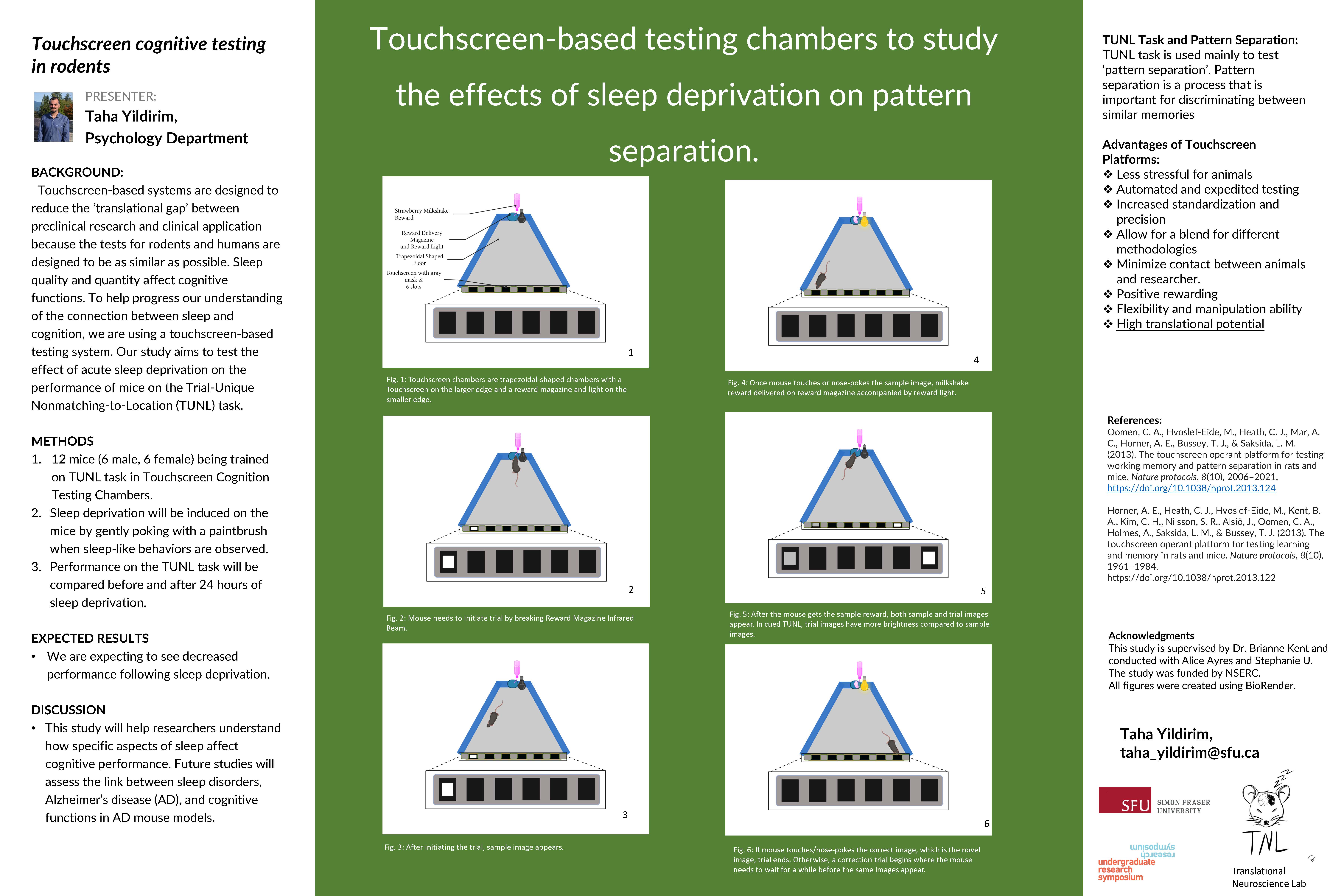Touchscreen cognitive testing in rodents
Main Article Content
Abstract
Sleep quality and quantity affect cognitive functions. To help progress our understanding of the connection between sleep and cognition, we will be using a touchscreen-based testing system. Touchscreen-based systems are designed to reduce the ‘translational gap’ between preclinical research and clinical application, because the tests for rodents and humans are designed to be as similar as possible.
Touchscreen-based systems have many benefits to traditional behavioural testing in rodents such as the expedited testing using automation. They are less stressful for animals, increase standardization and precision, allow for a blend of different methodologies (e., optogenetics), and minimize contact between animals and researcher. They also use only positive rewards, such as strawberry milkshake when mice make correct responses.
Our study aims to test the effect of acute sleep deprivation on performance of mice on the Trial-Unique Nonmatching-to-Location (TUNL) task. TUNL is designed to assess pattern separation, which is a hippocampal neurogenesis-dependent process and is hypothesized to be uniquely vulnerable to sleep deprivation. To induce sleep deprivation, mice will be poked gently with a paintbrush when sleep-like behavioural signs are noticed.
This study will inform future research on how specific aspects of sleep are important for cognition, as well as inform research focused on the complex relationship between sleep and Alzheimer’s disease.
Faculty Supervisor: Dr. Brianne Kent, Department of Psychology, Simon Fraser University
Article Details

This work is licensed under a Creative Commons Attribution-NonCommercial-NoDerivatives 4.0 International License.

